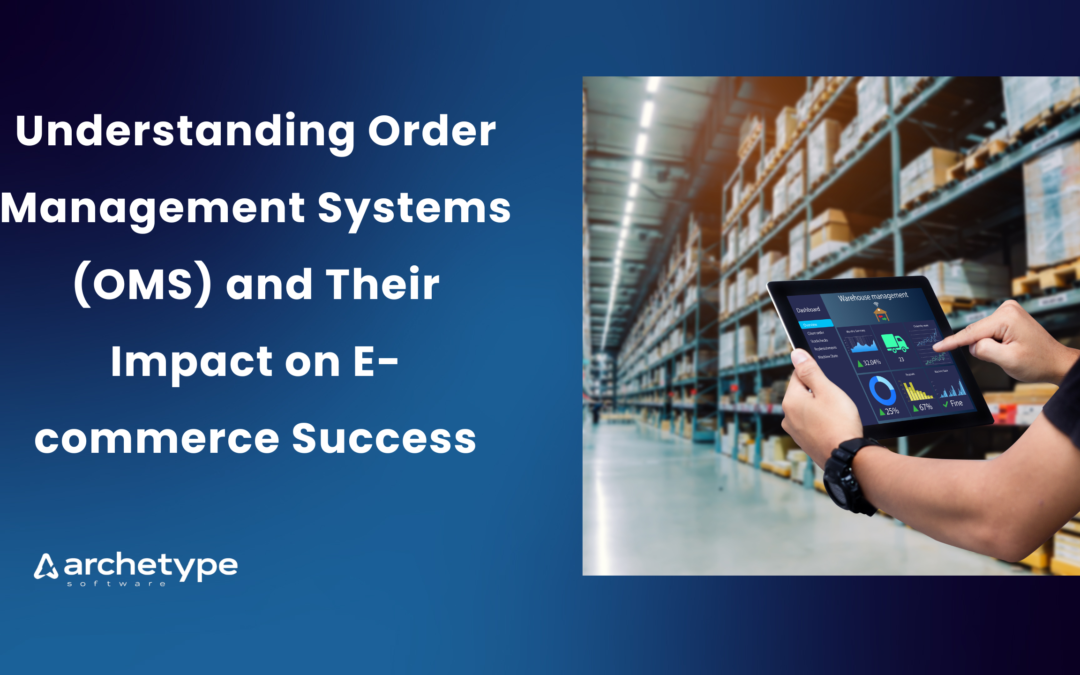An Order Management System (OMS) is essential for managing orders, inventory, and customer data seamlessly. By adopting a robust OMS, businesses can efficiently handle order processing, reduce errors, and improve decision-making, ultimately driving growth and enhancing customer satisfaction.
This article will explore the meaning of OMS, its core components, and the impact it can have on an e-commerce business.
What is an Order Management System (OMS)?

An Order Management System (OMS) is a digital tool designed to manage and streamline the entire lifecycle of an order, from initial purchase to fulfillment. This system ensures that orders are tracked accurately, inventory levels are updated in real-time, and all customer information is kept organized. With e-commerce businesses facing high customer expectations and competition, having an effective OMS can be a game-changer.
By automating various processes, an OMS allows companies to process orders quickly and accurately, reduce errors, and maintain efficient workflows. The automation and integration capabilities of an OMS can directly lead to increased operational efficiency, improved customer satisfaction, and stronger profitability.
Core Components of an OMS in E-commerce
An OMS brings together several critical functions under a single system. Here’s a breakdown of its key components and why each is important:
1. Order Processing and Tracking
Efficient order processing is at the heart of any OMS. This component allows businesses to manage orders from multiple channels, including websites, marketplaces, and physical stores, all within one platform.
An OMS can automatically route orders to the appropriate fulfillment center and update customers on the status of their orders in real-time, leading to a smoother experience.
2. Inventory Management
A well-integrated OMS offers real-time inventory tracking across all sales channels. It provides updates on stock levels, sets alerts for low stock, and even manages stock reservations for different customer segments. This function ensures that businesses avoid issues like overselling or stockouts, which can impact customer satisfaction and revenue.
3. Customer Relationship Management (CRM) Integration
Integrating CRM functionality with OMS allows companies to maintain customer information, order history, and preferences in a single view. This unified approach enables personalized customer service, including targeted marketing, special promotions, and a smoother return process.
With CRM integration, businesses can foster stronger relationships with customers, increasing loyalty and lifetime value.
4. Returns and Refunds Management
Returns are a common aspect of e-commerce, and an OMS can help manage these efficiently. By streamlining the return process, an OMS can automatically handle refunds, manage restocking, and even analyze return trends. This component helps businesses minimize the impact of returns on profitability and improves the customer experience.
5. Analytics and Reporting
Data is critical for making informed business decisions, and an OMS offers valuable insights into sales, order trends, and inventory turnover. Through comprehensive analytics and reporting features, businesses can identify growth opportunities, optimize inventory management, and enhance customer satisfaction.
Why is an OMS Important for E-commerce Success?

In e-commerce, customer satisfaction and efficient operations are vital. An OMS contributes to these goals by ensuring that all aspects of order processing and inventory management are aligned and optimized.
Below are some of the key benefits of implementing an OMS in e-commerce:
Improved Efficiency
By automating manual tasks and eliminating bottlenecks in the order processing workflow, an OMS boosts efficiency. Employees can focus on higher-value tasks while routine order management is handled by the system.
Enhanced Customer Experience
Customers appreciate real-time updates on their orders and the ability to track their purchases. An OMS provides transparency and accuracy in order tracking, resulting in a positive shopping experience that can lead to repeat purchases and brand loyalty.
Reduced Errors and Costs
Mistakes in order fulfillment, such as shipping incorrect items or failing to update inventory, can lead to significant financial losses and damage to customer trust. An OMS minimizes these errors by automating order processing and inventory tracking.
Scalability for Growing Businesses
An OMS is scalable and can handle increased order volumes without sacrificing accuracy or speed. As a business grows, the OMS adapts to manage higher sales volumes, making it a valuable tool for scaling up operations efficiently.
How Major E-commerce Players Utilize OMS for Success

Companies like Amazon and Walmart use sophisticated OMS solutions to manage their high order volumes. By leveraging OMS, these companies can fulfill orders quickly and accurately, ensuring that they maintain a competitive edge.
Their OMS systems are often integrated with other business tools, such as Enterprise Resource Planning (ERP) systems and Customer Data Platforms (CDP), allowing for a holistic approach to order and customer management.
Choosing the Right OMS for Your Business
Selecting an OMS depends on your business needs, sales channels, and future growth plans. Some key factors to consider when choosing an OMS include:
- Integration capabilities with other software, such as CRM, ERP, and accounting tools.
- Customization options to fit specific workflow requirements.
- User-friendly interface for easy adoption across your team.
- Scalability to support future growth and increased sales volumes.
Conclusion
An Order Management System (OMS) is a vital tool for e-commerce businesses aiming to optimize order processing, manage inventory, and enhance customer satisfaction. By investing in a reliable OMS, companies can streamline their operations, reduce errors, and better serve their customers. As competition in the e-commerce space intensifies, adopting a robust OMS can make a significant difference in operational efficiency and overall success.
To dive deeper into the importance of OMS and how to choose the right one for your e-commerce business, check out the full guide at ProductScope AI.
Checkout ProductScope AI’s Studio (and get 200 free studio credits)
FAQs
What type of businesses benefit most from an Order Management Systems?
While any business that manages inventory can benefit from an OMS, e-commerce companies, retailers with multiple sales channels, and businesses dealing with large order volumes find the most value. OMS solutions help these businesses handle complex order fulfillment and inventory management processes efficiently.
Can an OMS integrate with existing software like CRM and ERP systems?
Yes, most Order Management Systems solutions are designed to integrate with popular CRM and ERP systems, as well as other software tools like shipping and accounting platforms. Integration allows for seamless data flow between systems, reducing manual data entry and ensuring real-time updates across all departments.
How does an OMS improve customer satisfaction?
An OMS enhances customer satisfaction by providing accurate order tracking, fast and reliable order fulfillment, and streamlined return processing. Real-time updates and transparency in the order process lead to a better shopping experience, which can boost customer loyalty.
Is an OMS scalable as a business grows?
Absolutely. Most Order Management Systems solutions are scalable, allowing them to handle increased order volumes and inventory complexity as a business expands. This scalability makes an OMS a valuable long-term investment for companies planning to grow their customer base and product offerings.

